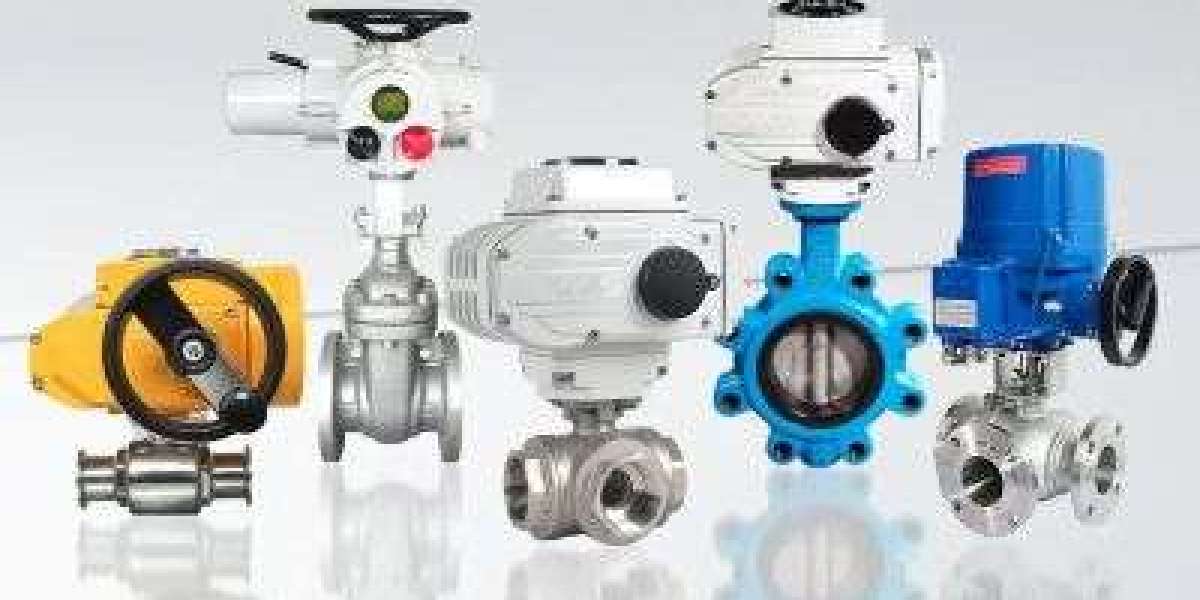Introduction: The Power Behind Precision in Fluid Control
As a leading control valve manufacturer in China, we deliver premium valves and control actuators expertly designed to meet a wide range of industrial requirements.
In the rapidly advancing realm of industrial automation, electric flow control valves are revolutionizing fluid management within complex systems. These intelligent devices merge traditional valve technology with electric actuators to provide seamless, precise regulation of liquids, gases, and slurries. Whether managing corrosive chemicals, fine-tuning water treatment processes, or safeguarding fuel flow in power plants, electric flow control valves deliver exceptional accuracy, efficiency, and reliability across a wide array of industrial applications.
As industries increasingly prioritize smarter, more sustainable operations, electric control valves have transitioned from a technological trend to a critical necessity. Their ability to automate fluid control, reduce energy consumption, and enhance safety is vital in sectors where precision and uptime are non-negotiable. This article explores the key features and benefits of electric flow control valves and highlights their transformative impact on global industrial operations.
Electric Control Valves: Key Features
Electric flow control valves distinguish themselves through automation, precision, safety, and adaptability. Here are the core features that make them indispensable:
1. High Degree of Automation
Unlike manual or pneumatic valves, electric valves seamlessly integrate with centralized control platforms such as SCADA (Supervisory Control and Data Acquisition) systems and PLCs (Programmable Logic Controllers). This integration enables operators to remotely monitor, open, close, or modulate valve positions, drastically reducing the need for on-site manual intervention.
Benefits:
Faster response times
Reduced human error
More efficient workflows
Critical in processes where flow rate deviations impact safety or product quality
2. Superior Accuracy and Control
Equipped with precision electric actuators and advanced feedback systems, electric valves provide micro-adjustments to regulate flow with exceptional accuracy. They outperform manual valves prone to operator variability and pneumatic valves susceptible to pressure fluctuations, ensuring consistent, repeatable control.
Applications requiring precision:
Pharmaceutical batch mixing
Chemical dosing
Food and beverage processing
3. Versatile Applications Across Industries
Electric flow control valves suit a diverse range of industries and media types, including:
Water & Wastewater Treatment: Automated flow in filtration and chlorination
Chemical & Petrochemical: Safe handling of corrosive and hazardous fluids
Oil & Gas: Regulation of high-pressure fuels and gases
Power Generation: Steam, cooling water, and feedwater control
Manufacturing & Metallurgy: Cooling circuits and hydraulic systems
4. Enhanced Safety and Risk Reduction
By enabling remote operation, electric valves reduce personnel exposure to hazardous environments such as toxic chemicals, high pressures, or extreme temperatures. Many include fail-safe features, overload protection, and emergency shut-off capabilities, crucial for preventing leaks, overflows, or catastrophic failures.
5 Ways Electric Flow Control Valves Enhance Industrial Operations
1. Precision in Flow Regulation
Electric actuators allow for fine valve positioning, minimizing waste and ensuring consistent process quality. This is vital in sensitive operations where even minor flow variations affect outcomes.
2. Seamless Integration into Digital Ecosystems
Designed for compatibility with SCADA and DCS (Distributed Control Systems), electric valves provide real-time data and status feedback. This connectivity supports:
Rapid response to system changes
Early detection of performance issues
Automation of complex control sequences
3. Energy Efficiency and Environmental Responsibility
Unlike pneumatic systems that require constant air compression, electric valves consume power primarily during actuation. This results in:
Lower overall energy usage
Reduced greenhouse gas emissions
Alignment with corporate sustainability and ESG (Environmental, Social, Governance) goals
4. Long-Term Reliability and Durability
Constructed from robust materials such as stainless steel, brass, and reinforced polymers, electric valves withstand extreme temperatures, corrosive fluids, and high pressures. Features like sealed enclosures protect against contaminants, extending service life. Some advanced valves include self-diagnostics to enable predictive maintenance and reduce downtime.
5. Operational Cost Savings and Maximum Uptime
Fewer moving parts mean less wear and tear, lowering maintenance costs. High reliability ensures minimal downtime—a critical factor where production interruptions can be costly. Investing in electric valves is an investment in long-term operational resilience.
Future Outlook: Embracing Smart Valve Technology
The rise of Industry 4.0 is accelerating the adoption of smart, connected components like electric flow control valves. Innovations such as wireless communication, AI-driven control algorithms, and machine learning are transforming valves into data-rich assets that enable predictive maintenance and real-time process optimization.
Looking ahead, electric valves will increasingly incorporate sensors that monitor temperature, pressure, flow rate, and vibration, feeding data into cloud-based control systems. This integration will optimize plant performance automatically, making electric valves integral to the smart factory revolution.
Conclusion: Driving the Future of Industrial Fluid Control
Electric flow control valves are now a cornerstone of modern industrial automation. Their unparalleled precision, reliability, and connectivity empower industries to meet growing demands for performance, safety, and sustainability.
From reducing energy consumption and operational costs to ensuring regulatory compliance and consistent quality, electric valves deliver immediate and lasting benefits. Their versatility makes them essential tools across diverse sectors worldwide.
As the global shift toward automation and environmental stewardship intensifies, electric flow control valves will continue to redefine fluid management—setting new standards for industrial efficiency and innovation.
Know more about Google SEO Directory








